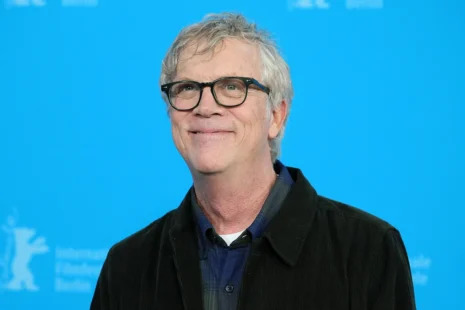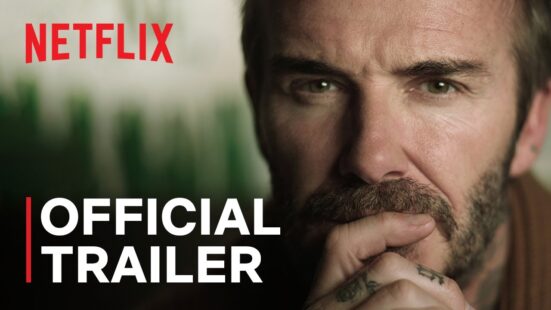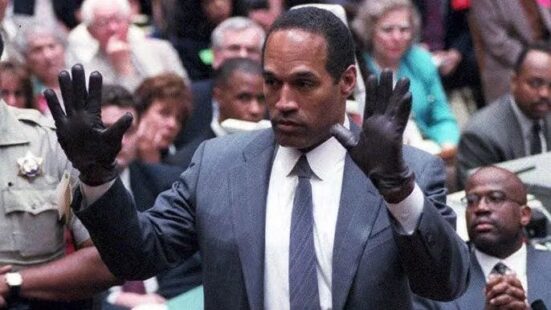Menu

- June 1, 2025
The Hollywood Reporter writers Steven Zeitchik and Ethan Millman report on shifts in the documentary field toward authorized celebrity music biographies catering to a large built-in audience, and generally, away from rigorous, artistic exploration into a figure or issue.

- May 5, 2025
Freelance journalist/critic Zach Schonfeld details the shifting landscape of celebrity documentary, with more and more projects leaning toward risk aversion and/or incorporating subject participation at varying levels of the filmmaking process.

- May 4, 2025
The Guardian reporter Edward Helmore details media responses from PBS’s chief executive, Paula Kerger, and NPR’s chief executive, Katherine Maher, following efforts by the Trump administration to cut off taxpayer funding to PBS and NPR.

- April 18, 2025
Senior Editor Daniel Engber writes in the Atlantic about PBS's long-running series POV, as it navigates public media threats from the Trump administration, focusing on filmmaker Jane M. Wagner's account of the repositioning of her film Break the Game within POV programming. *Please note: This article is behind a paywall.

- March 26, 2025
At CPH:DOX, U.S. and European doc leaders met to strategize new funding distribution models for political documentaries as major American streamers shift toward less politically risky content.

- March 1, 2025
Guardian arts writer Adrian Horton details the self-distribution journeys of documentaries like 'No Other Land,' about the destruction of West Bank community Masafer Yatta by the Israeli military, and 'Union,' about the campaign to unionize an Amazon warehouse.

- February 15, 2025
Frustrations are mounting within the documentary community as Oscar voters continue to overlook celebrity-driven docs, highlighting deeper tensions around streamer influence and the future of social issue filmmaking in a polarized political climate.

- February 13, 2025
At the Berlinale’s kickoff, Todd Haynes called for creative resistance amid rising political tensions, emphasizing cinema’s role in confronting destabilization under Trump.

- February 7, 2025
Writer Nicky Yeager interviews Mars Verrone, producer of 'Union,' a self-distributed documentary about the campaign to unionize an Amazon warehouse, discussing the documentary distribution landscape and the struggles the film team faced in getting the film to viewers.

- February 4, 2025
Sundance is increasingly becoming one of the most vital global launchpads for documentaries, with films transcending national borders to secure international distribution.

- January 29, 2025
European filmmakers are rallying behind a petition demanding stronger regulation of tech giants, warning that platforms like X, Meta, and TikTok are enabling disinformation and threatening democratic values across Europe.

- January 23, 2025
While streaming platforms have grown wary of political documentaries, Sundance Film Festival continues to spotlight politically engaged documentaries like “Mr. Nobody Against Putin” and “Khartoum,” prioritizing their cultural significance over commercial appeal.

- January 15, 2025
Documentary films sympathetic to Palestine and critical of Israel, including the acclaimed “No Other Land” with over 45 awards, struggle to secure U.S. distribution despite strong audience demand, highlighting broader challenges for geopolitical documentaries in the current marketplace.

- January 12, 2025
Celebrity documentaries are producing outsized financial returns for their subjects and unprecedented creative control, with Netflix’s “Beckham” series netting $36 million.

- December 18, 2024
A NATO report projects strong theatre attendance trends, with 85% of moviegoers planning to maintain or increase their theatre visits in 2025. Gen Z and Hispanic audiences show particularly strong engagement, with Gen Z ranking opening weekend moviegoing as their top leisure activity and Hispanic viewers being 11% more likely to attend opening weekend than the general population.

- December 18, 2024
Several critically acclaimed documentary films addressing social issues are struggling to secure U.S. distribution deals despite international recognition and Oscar shortlist nominations.

- October 29, 2024
A growing movement of microdistribution is emerging in indie film, with film professionals creating bespoke theatrical release strategies for worthy films often overlooked by traditional distributors.

- October 16, 2024
Streaming platforms have elevated documentaries to mainstream popularity. However, this paradigm shift spawned an immediate decline in documentary quality as streaming prioritizes formulaic-driven storytelling with mass appeal, ultimately diminishing the genre’s artistic and cultural value.

- October 7, 2024
Netflix’s growth was driven by strategic debt rather than venture capital. Earning the nickname “Debtflix” in the business press, the company operated by tech-sector rules, spending vast amounts of cash to acquire customers and expand its offerings, ultimately curating the expansive content library we enjoy today.


Sundance 2025: Don’t Look Away